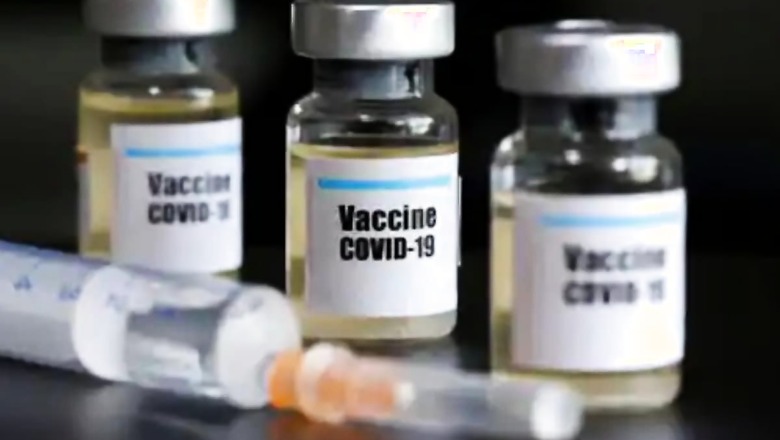Covid-19 Vaccination Won't be Available Until Mid Next Year, Says WHO; Russia Terms its Vaccine Safe

views
In a statement that comes as a disappointment to billions of people globally, the World Health Organization on Friday said that they don’t expect a vaccine to be ready until middle of next year. None of the candidate vaccines in advanced clinical trials so far has demonstrated a “clear signal” of efficacy at the level of at least 50% sought by the WHO, spokeswoman Margaret Harris said. She was speaking at a briefing of the United Nations in Geneva.
“This phase III must take longer because we need to see how truly protective the vaccine is and we also need to see how safe it is,” she said. It is important to note that phase III trials involving tens of thousands of healthy volunteers that test experimental vaccines against a placebo are considered necessary to determine safety and efficacy before they are given to hundreds of millions of people to prevent or lessen the severity of Covid-19. All data from trials must be shared and compared, Harris said. “A lot of people have been vaccinated and what we don’t know is whether the vaccine works. At this stage we do not have the clear signal of whether or not it has the level of worthwhile efficacy and safety.” she added.
Meanwhile, the tug of war between the WHO and the US continues. The word body on Monday warned against moving too quickly on the vaccine. “If you move too quickly to vaccinate millions of people, you may miss certain adverse effects,” said Mike Ryan, the head of WHO’s emergencies programme. The obvious reference was to President Donald Trump asking two thirds of states in the US to be prepared to vaccinate before the presidential elections on November 3. The statement from the WHO invited the ire of the White House with spokesperson Judd Deere saying, “The United States will continue to engage our international partners to ensure we defeat this virus, but we will not be constrained by multilateral organisations influenced by the corrupt World Health Organization and China.”
In its draft landscape for Covid-19 vaccines, the World Health Organisation, lists Russia’s Sputnik V as in phase 1, which means that the vaccine has only been tested for safety yet. The minimum requirement for a Covid-19 vaccine is a good safety profile, and at least 30 per cent protection at the population level, Dr Soumya Swaminathan, chief scientist, WHO, said at the organisation’s press briefing on Monday. For many vaccine candidates, phase III is only beginning, and it will be the real test of their efficacy, Swaminathan said.
Russia today, however, has in its scientific paper, published in The Lancet, said that Sputnik-V Covid-19 vaccine produced an antibody response in all participants in early stage trials. Large long-term trials including a placebo comparison and further monitoring are needed to establish the long-term safety and effectiveness of the vaccine for preventing the infection.
Secondary outcomes from the trial suggest the vaccines also produce a T cell and neutralising antibody response within 28 days. The two 42-day trials also confirmed that the vaccine candidates elicit an antibody response. The two trials – including 38 healthy adults each – did not find any serious adverse effects among participants.
“Conclusion: encouraging, but small. Large phase III studies are ongoing and much needed,” said Richard Horton, Editor and Chief of The Lancet, in a tweet. The Ministry of Health of the Russian Federation has funded the study. Russia licensed the two-shot jab for domestic use in August, the first country to do so and before any data had been published or a large-scale trial begun.
In India, meanwhile, sources in the government have indicated that the country has sought more details from Russia on Sputnik V. The government has not ruled out procuring the vaccine from Russia and is in fact waiting for an application for starting the trials in India. Sputnik V is being developed by Moscow-based Gamaleya Research Institute of Epidemiology and Microbiology. Defence Minister Rajnath Singh, who is in Moscow for the Shanghai Cooperation Organisation (SCO) ministerial meeting, has expressed confidence over the efficacy of Russia’s Covid-19 vaccine and said that India and Russia have had a long-running partnership.

















Comments
0 comment